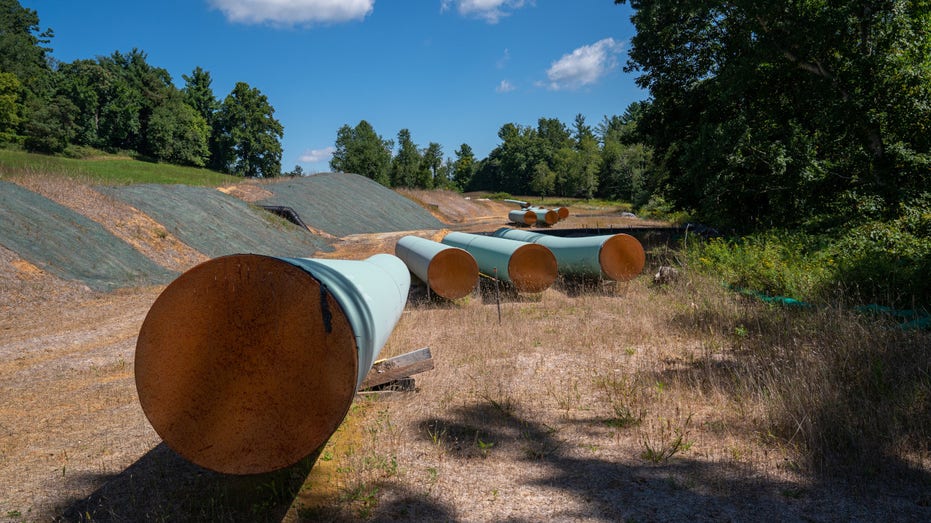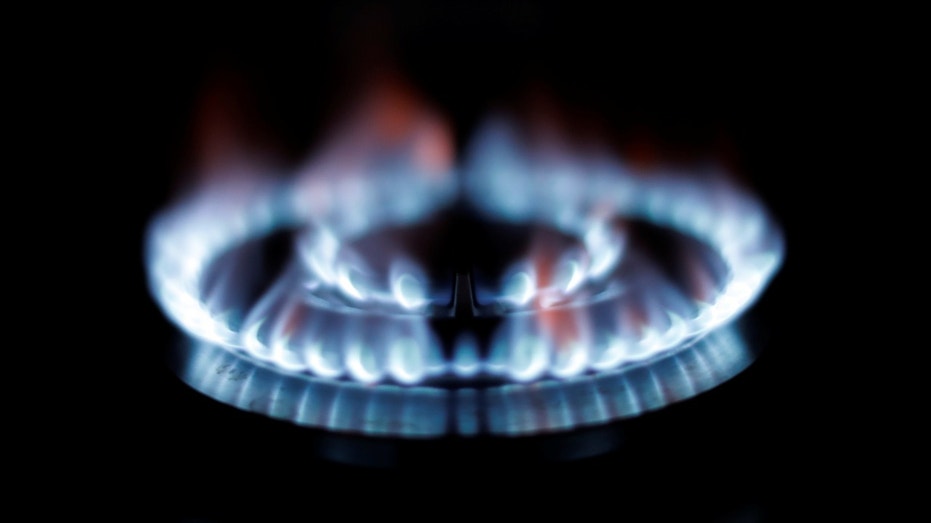Utilities pursue pipeline sales as natural-gas bans catch on
Possible sales come as regulators debate fossil fuels’ future in home heating and cooking
NY Gov. Hochul's proposed ban on natural gas 'accomplishes almost nothing': Sen. Bill Cassidy
Sen. Bill Cassidy, R-La., discusses New York Governor Kathy Hochul's proposed ban on natural gas, and the discovery of a second batch of classified documents from President Biden.
Two of the country’s largest utility companies are weighing potential sales of parts of their natural-gas pipeline networks as efforts to phase out in-home gas use accelerate.
Dominion Energy Inc. is considering selling its gas-distribution companies serving North Carolina, Ohio and parts of the Western U.S., according to people familiar with the matter. Combined, the assets could be worth as much as $13 billion, some of the people said, though they are unlikely to be sold all together.
Meanwhile, National Grid PLC is exploring a possible sale of part of its pipeline network serving the Northeast as lawmakers there look to curtail fossil-fuel use, according to people familiar with the matter. One option under discussion at the British utility company is to sell a minority interest in the network, some of the people said.

42 diameter sections of steel pipe of the Mountain Valley Pipeline, MVP, lie on wooden blocks, August 31, 2022 in Bent Mountain, Virginia. The MVP will transport natural gas through 303 miles of West Virginia and Virginia. (Photo by Robert Nickelsber (Robert Nickelsberg/Getty Images / Getty Images)
The potential sales come as lawmakers and regulators across the U.S. debate the future of natural gas for home heating and cooking as more towns and cities look to phase it out. Utilities are working to determine how to modify or repurpose their natural-gas delivery networks in response.
MANCHIN CALLS FEDERAL COURT'S DECISION BLOCKING WEST VIRGINIA PIPELINE 'INFURIATING'
The electrification of homes and businesses is a key part of the Biden administration’s climate agenda. The Inflation Reduction Act passed last year includes tax credits to motivate the purchase of heat pumps and other electric appliances and fixtures, as well as the adoption of electric vehicles. Those shifts are expected to boost demand for electricity, which for years plateaued in the U.S. as a result of energy-efficiency improvements.
| Ticker | Security | Last | Change | Change % |
|---|---|---|---|---|
| D | DOMINION ENERGY INC. | 62.33 | -0.19 | -0.30% |
| NGG | NATIONAL GRID PLC | 88.04 | +1.12 | +1.29% |
As a result, utilities are beginning to grapple with the likelihood that parts of their gas systems risk becoming stranded assets, or facilities that retire before they pay for themselves, as fewer homes and businesses rely on the networks of pipelines built to serve them.
Brattle Group, a consulting firm, has estimated that U.S. gas-distribution infrastructure worth as much as $180 billion might risk becoming stranded as a result of the transition.

Flames from a gas burner on a cooker are seen February 1, 2017 in this illustration photo taken in a private home. Picture taken February 1, 2017. REUTERS/Eric Gaillard (Reuters/Eric Gaillard / Reuters Photos)
The momentum first began building at the local level, as cities and towns across the U.S. enacted measures restricting the use of gas in new buildings to reduce carbon emissions in response to concerns about climate change. Potential bans on gas stoves and other restrictions have sparked a fierce backlash in some corners. Republican-run states have generally opposed such measures, while Democratic-run ones have supported them.
GET USED TO 'NEW ERA OF HIGH ENERGY PRICES,' EXPERT SAYS
Dominion, which supplies electricity or natural gas to about seven million customers in 16 states, last year sold its natural gas-distribution business in West Virginia to Hearthstone Utilities, a subsidiary of privately held Ullico Inc., for $690 million. In 2020, Dominion sold its natural-gas transmission and storage network to Warren Buffett’s Berkshire Hathaway Inc. for $9.7 billion including debt.
Late last year, Dominion announced a "top-to-bottom business review" to improve its share price as it invests in renewable energy and improvements to the electric grid. Any potential sale of its gas distribution assets isn’t directly tied to gas bans, as its gas distribution companies operate in states where such bans haven’t yet proliferated. Utah, Wyoming and Ohio have passed legislation outlawing the bans, while North Carolina has considered such a measure.

An American flag flies on top of the Dominion Energy headquarters in Richmond, Virginia, U.S., on Monday, July 6, 2020. Dominion Energy, the second-biggest U.S. power company by market value, tried selling substantially all of its gas pipeline and st (Photographer: Julia Rendleman/Bloomberg via Getty Images / Getty Images)
National Grid is one the largest utilities in the Northeast, where lawmakers are growing increasingly hostile toward fossil fuels. New York is poised this year to become the first state in the U.S. to pass a law banning natural-gas and other fossil-fuel hookups in new buildings, a step Democrats are pushing to help the state meet greenhouse-gas reduction targets. Meanwhile, Massachusetts last year passed a law that allowed some municipalities to move forward with ordinances prohibiting the installation of gas infrastructure in new construction and major renovations.
Earlier this year, National Grid partially divested some of its gas assets with a sale of a 60% stake in its U.K.-gas transmission business to a consortium of Macquarie Asset Management and British Columbia Investment Management Corp.
The move was part of a strategic pivot toward electricity, the company said as it announced the transaction in March of 2022. The U.K.-based company provides gas or electricity to about 20 million people in parts of New York and Massachusetts.
CLICK HERE TO GET THE FOX BUSINESS APP
Both Dominion and National Grid have set net-zero targets to aggressively reduce their carbon emissions, including from the products they supply customers, such as natural gas. The companies are also investing in technologies expected to benefit from provisions of the Inflation Reduction Act.
Dominion is constructing a $9.8 billion offshore wind farm off the coast of Virginia. The 2.6 gigawatt project is expected to be complete in 2026.
National Grid is exploring uses for hydrogen and helping to develop a hydrogen hub in the Northeast. It is also working with the town of Hempstead to expand a clean-hydrogen project on Long Island that is expected to heat approximately 800 homes and fuel 10 municipal vehicles.
Ryan Dezember contributed to this article.




















